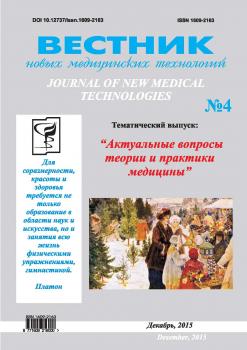The article is devoted to studying the condition of central and autonomic nervous systems in the recovery period after the refusal of intensive physical load. The study involved 25 young men aged 18, 4 ± 0, 3 year. Each of them, it was offered a test with increasing in intensity step-dosed physical load on the cycle ergometer. "Sports Art 5005" ergometer was used for load testing and the testing itself was conducted under ECG and EEG control. A spectral analysis of ECG and analysis of heart rate variability were conducted. The heart rate, Kerdo index, stroke volume, cardiac output blood flow were calculated. The full EEG spectral power and spectral powers of separate rhythms were evaluated. Blood pressure was measured in the «background» status, at the moment of failure to take the load and after the recovery. The authors evaluated the level of self-feeling and fixed subjective complaints. It is shown, that at the time of failure of intense load subjects reach of the limit of their physical capacity level, which is reflected in the increasing of sympathetic effects. It´s marked in increase in heart rate and hemodynamic parameters. At time when the motoric program was stopped, the subjects were begun to the recovery. It was accompanied by a significant increase in spectral power of delta waves in the prefrontal and occipital cortex of the left and right hemispheres in the 1st minute of recovery. The appearance of delta waves was due to the increasing of inhibitory processes in the cerebral cortex as a result of fatigue and they have of defensive nature. The recovery process is characterized by significant reorganizations of vegetative regulation mechanisms. It was marked a sharp increase in spectral power of VLF -waves on the third minute of recovery and a reducing of heart rate variability to the 6-th minute of recovery. Thus, the recovery process after intense physical load is characterized by significant reorganizations in condition of central nervous system and autonomic nervous system.
refusal of intense physical load, recovery, central nervous system, autonomic nervous system.
Известно, что рост интенсивности физической нагрузки сопровождается повышением мощности функционирования всех физиологических систем организма человека, включая нервную, эндокринную, кардиореспираторную и мышечную системы. При этом особая роль отводится нервной системе, объединяющей все функциональные системы в единое целое. При этом высшим центром интеграции является кора больших полушарий головного мозга, координирующая работу всех функций организма [1].
Показано, что физические нагрузки поддерживают работу механизма, ответственного за возбудимость коры головного мозга. Так, минимальные физические нагрузки повышают возбудимость коры, а длительная и интенсивная физическая работа, наоборот, вызывает резкое снижение возбудимости и углубление тормозных процессов [3]. Однако, до сих пор отсутствует информация об изменении состояния центральной и вегетативной нервной систем человека в первые минуты восстановления после отказа от интенсивной физической нагрузки.
Цель исследования - изучение состояния центральной и вегетативной нервной систем человека в восстановительный период после отказа от интенсивной физической нагрузки.
Материалы и методы исследования. В обследовании приняли участие 25 добровольцев мужского пола в возрасте 18-19 лет, занимающихся физической культурой. Каждому из них предлагалась возрастающая по интенсивности ступенчато-дозированная физическая нагрузка на велоэргометре в работе до отказа. В процессе обследования испытуемые пребывали в следующих состояниях: «фон» (2,5 мин); «разминка-60 Вт» (2 мин), «возрастающая по интенсивности этапно-дозированная нагрузка с шагом 20 Вт от 80 Вт до 120 Вт «на фоне постоянной скорости вращения педалей - 60 об / мин (по 1 мин для каждой ступени нагрузки); физическая нагрузка на ступени





